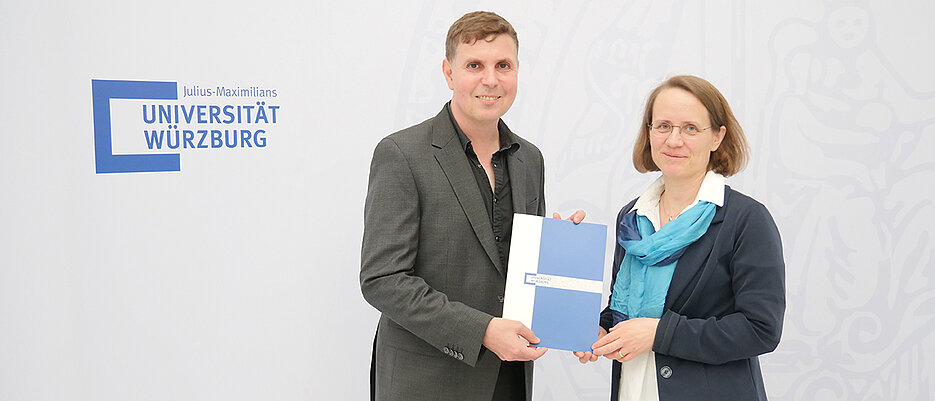Cities, Rural Areas, Infrastructure: Regions in Transition
09/02/2025Professor Matthias Naumann investigates the transformation of cities, rural areas and infrastructures. He has headed the Chair of Human Geography at the University of Würzburg since the beginning of August.

Human geography? Not everyone is familiar with this field of science. To put it simply, human geographers describe how people live on and change the earth. How they build cities, practise agriculture or develop energy sources - and the consequences of all this. A very broad field.
A new Professor of Human Geography has been working at Julius-Maximilians-Universität (JMU) Würzburg since 1 August 2025: Matthias Naumann. He moved to JMU from the University of Bonn; his research focuses on the transformation of cities, rural areas and technical infrastructures.
Conflicts Over Wind Farms in the Countryside
In one of his previous projects, for example, Matthias Naumann analysed the handling of energy policy conflicts in rural Brandenburg: What dynamics develop in villages where wind turbines are to be built? Why is there fierce resistance in some places and not in others? How do different stakeholders deal with this?
"Resistance can arise, for example, if citizens are informed too late about planned wind farms," explains the professor. But resistance can also be completely absent: He observed this in a village where the mayor had agreed with the investors at an early stage that the community would share in the profits. Since then, the money received has been distributed to the residents.
Another example: In Berlin and Hamburg, Naumann investigated how the two cities bought back their water and energy supply infrastructure from private companies: Which players were involved, what interests did they pursue, how did the process work?
Gentrification, i.e. the upgrading of residential areas and the resulting displacement of poorer people, does not only take place in large cities, but also in villages. This is another topic that the professor has dealt with in the past.
Talking to People and Accompanying Them
Students can participate in many of his projects. They are not the only ones who can look forward to seeing what Matthias Naumann will focus on in Würzburg. The population in the region can also expect to be involved in his research. After all, human geography work is not just about dealing with data. It also involves being on the ground - meeting people, accompanying them in their everyday lives, collecting different perspectives on certain topics in interviews and conversations.
What ideas does the new professor have for his work at JMU? He says that he definitely wants to tackle issues relating to rural development in Lower Franconia, as well as the sustainable development of the city of Würzburg. He would also like to further expand existing collaborations with universities and research institutions in Germany and abroad.
Career of the New Professor
Matthias Naumann, born in 1976, grew up in Berlin and studied Geography, Sociology and European Ethnology at Humboldt University in his home city. Over the course of his career, he has researched and taught at universities in Berlin, Bonn, Cottbus, Potsdam, Dresden, Hamburg, Halle (Saale) and Klagenfurt. He has also worked as a researcher at non-university research institutions in Berlin, Cottbus and Erkner.
Contact
Prof Dr Matthias Naumann, Chair of Human Geography, University of Würzburg, matthias.naumann@uni-wuerzburg.de






